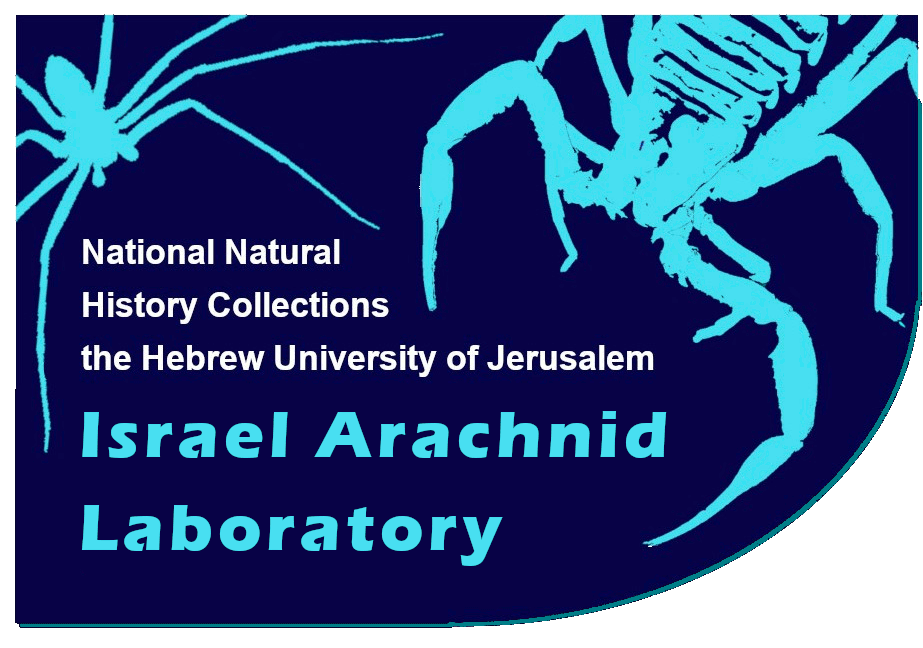Artema nephilit Aharon, Huber & Gavish-Regev, 2017
Artema nephilit is a large species of cellar spider, somewhat more massive than common cellar spiders (e.g. Pholcus phalangioides Füssli, 1775). It found in hot and dry habitats in the eastern Mediterranean basin, and the Arabian peninsula. Like other cellar spiders, it constructs a web in sheltered localities, and is often synanthropic. It is a generalist hunter, feeding on a wide variety of insects.
photo by: Shlomi Aharon
Female
Artema nephilit is one of two representatves of Artema in Israel,the other being Artema doriae (Thorell, 1881).
Accession in GENBANK:
Taxonomic Classification
Class: Arachnida
Order: Araneae
Family: Pholcidae
Genus: Artema
Species: Artema nephilit
Authors: Aharon, Huber & Gavish-Regev, 2017

Distribution map (adapted from Aharon, Huber and Gavish-Regev, 2017)
Accession in the World Spider Catalog:
Articles about Artema nephilit:
Aharon, S. (2015). Ecology and taxonomy of the family Pholcidae in Israel: Species richness, geographic distributions and taxonomical revision of the genus Artema (Pholcidae, Araneae) (Doctoral dissertation, Ben-Gurion University of the Negev, Jacob Blaustein Institutes for Desert Research, Albert Katz International School for Desert Studies).
Ecological Classification
Category: Troglophile
Cave zone: Entrance, outside
Microhabitat: On ceiling, walls, corners, under stones and under bolders
Aharon, S., Huber, B. A., & Gavish-Regev, E. (2017). Daddy-long-leg giants: revision of the spider genus Artema Walckenaer, 1837 (Araneae, Pholcidae). European Journal of Taxonomy, (376).
DOI: https://doi.org/10.5852/ejt.2017.376
Cuff, J. P., Aharon, S., Armiach Steinpress, I., Seifan, M., Lubin, Y., & Gavish-Regev, E. (2021). It’s All about the Zone: Spider Assemblages in Different Ecological Zones of Levantine Caves. Diversity, 13(11), 576.
DOI: https://doi.org/10.3390/d13110576
Gavish-Regev, E., Aharon, S., Armiach Steinpress, I., Seifan, M., & Lubin, Y. (2021). A Primer on Spider Assemblages in Levantine Caves: The Neglected Subterranean Habitats of the Levant—A Biodiversity Mine. Diversity, 13(5), 179.




